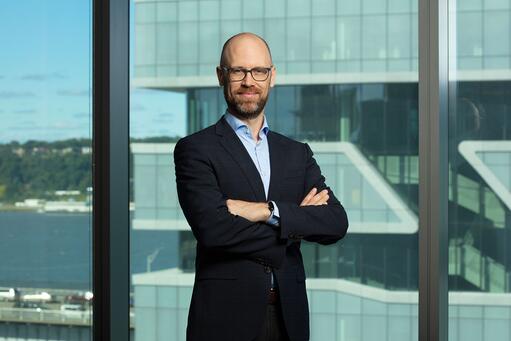Gender and the Workplace: New Research Finds Women Are More Likely to Pursue Meaningful Work
Columbia Business School Study Finds Difference between Men and Women’s Attitudes Toward Their Jobs
Columbia Business School Study Finds Difference between Men and Women’s Attitudes Toward Their Jobs
The Theodora Rutherford Inclusion Award celebrates CBS students who are committed to diverse experiences and inclusive leadership.
Six Studies Address Key Topics Crucial for Enhancing Outcomes for Women in Business
In-group bias can be detrimental for communities and economic development. We study the causal effect of financial constraints on in-group bias in prosocial behaviors – cooperation, norm enforcement, and sharing – among low-income rice farmers in rural Thailand, who cultivate and harvest rice once a year. We use a between-subjects design – randomly assigning participants to experiments either before harvest (more financially constrained) or after harvest. Farmers interacted with a partner either from their own village (in-group) or from another village (out-group).
This paper shows that providing undocumented immigrants with an immigration pardon, or amnesty, increases their economic activity in the form of higher entrepreneurship. Using administrative census data linked to the complete formal business registry, we study a 2018 policy shift in Colombia that made nearly half a million Venezuelan undocumented migrants eligible for a pardon. Our identification uses quasi-random variation in the amount of time available to get the pardon, introducing a novel regression discontinuity approach to study this policy.
Diversity initiatives are designed to help workers from disadvantaged backgrounds achieve equitable opportunities and outcomes in organizations. However, these programs are often ineffective. To better understand less-than-desired outcomes and the shifting diversity landscape, we synthesize literature on how corporate affirmative action programs became diversity initiatives and current literature on their effectiveness. We focus specifically on work dealing with mechanisms that make diversity initiatives effective as well as their unintended consequences.


David M. Schizer served as a dean of the Law School from 2004 to 2014 and is one of the nation’s leading tax scholars. His research also focuses on nonprofits, energy law, and corporate governance.


Adam Galinsky is the Vice Dean for Diversity, Equity and Inclusion and Paul Calello Professor of Leadership and Ethics at the Columbia Business School.
Professor Galinsky has published more than 300 scientific articles, chapters, and teaching cases in the fields of management and social psychology. His research and teaching focus on leadership, negotiations, diversity, decision-making, and ethics.


Ashli Carter is a Lecturer in the Management Division at Columbia Business School. Currently, she teaches topics in leadership, negotiations, and cultivating a growth mindset in the MBA and Executive Education programs, as well as for CBS administrators and staff. Prior to joining CBS faculty, she taught MBA and undergraduate courses in leadership and professional ethics at NYU Stern where she was an Assistant Professor/Faculty Fellow of Management and Organizations.


Michael Ewens is the David L. and Elsie M. Dodd Professor of Finance and co-director of the Private Equity Program. He is also a Research Associate at the National Bureau of Economic Research (NBER), Associate Editor of the Journal of Financial Economics, Associate Editor at the Review of Financial Studies, Assoicate Editor at Management Science, Associate Editor at the Journal of Corporate Finance, and co-editor of the Journal of Economics & Management Strategy. He received a Ph.D.

Wei Cai joined Columbia University in 2020. Her research interests revolve around management accounting, organizational culture, and diversity and inclusion. Her research broadly investigates how to measure and manage key organizational capital. For example, she examines how corporate leaders and managers can deliberately design and shape organizational culture, and improve organizational outcomes through innovative management control systems. She uses multiple research methods including statistical analyses of archival data sources, field experiments, and surveys.
As concern with climate change increases, people seek to behave and consume sustainably. This requires understanding which behaviours, firms and industries have the greatest impact on emissions. Here we ask if people are knowledgeable enough to make choices that align with growing sustainability intentions.
As concern with climate change increases, people seek to behave and consume sustainably. This requires understanding which behaviours, firms and industries have the greatest impact on emissions. Here we ask if people are knowledgeable enough to make choices that align with growing sustainability intentions.
As concern with climate change increases, people seek to behave and consume sustainably. This requires understanding which behaviours, firms and industries have the greatest impact on emissions. Here we ask if people are knowledgeable enough to make choices that align with growing sustainability intentions.
As concern with climate change increases, people seek to behave and consume sustainably. This requires understanding which behaviours, firms and industries have the greatest impact on emissions. Here we ask if people are knowledgeable enough to make choices that align with growing sustainability intentions.
As concern with climate change increases, people seek to behave and consume sustainably. This requires understanding which behaviours, firms and industries have the greatest impact on emissions. Here we ask if people are knowledgeable enough to make choices that align with growing sustainability intentions.
A principal often needs to match agents to perform coordinated tasks, but agents can quit or slack off if they dislike their match. We study two prevalent approaches for matching within organizations: centralized assignment by firm leaders and self-organization through market-like mechanisms. We provide a formal model of the strengths and weaknesses of both methods under different settings, incentives, and production technologies. The model highlights trade-offs between match-specific productivity and job satisfaction.
We develop a financial-economic model for carbon pricing with an explicit representation of decision making under risk and uncertainty that is consistent with the Intergovernmental Panel on Climate Change’s sixth assessment report. We show that risk associated with high damages in the long term leads to stringent mitigation of carbon dioxide emissions in the near term, and find that this approach provides economic support for stringent warming targets across a variety of specifications.
In this paper, we develop a computational measure of the firm-level rhetorical nationalism. We first review the literature and develop a four-dimensional theoretical framework of nationalism relevant to firms: national pride, anti-foreign, dominant agenda, and corporate role. We then use machine-learning-based text analysis of over 41,000 annual reports of Chinese public firms from 2000 to 2020 and identify a dictionary of words for each dimension.
Using publicly available data from 299 pre-registered replications from the social sciences, we find that the language used to describe a study can predict its replicability above and beyond a large set of controls related to the paper characteristics, study design and results, author information, and replication effort. To understand why, we analyze the textual differences between replicable and nonreplicable studies.
Using publicly available data from 299 pre-registered replications from the social sciences, we find that the language used to describe a study can predict its replicability above and beyond a large set of controls related to the paper characteristics, study design and results, author information, and replication effort. To understand why, we analyze the textual differences between replicable and nonreplicable studies.